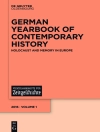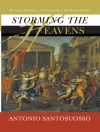In these essays, Michael S. Roth uses psychoanalysis to build a richer understanding of history, and then takes a more expansive conception of history to decode the cultural construction of memory. He first examines the development in nineteenth-century France of medical criteria for diagnosing memory disorders, which signal fundamental changes in the understanding of present and past. He next explores links between historical consciousness and issues relating to the psyche, including trauma and repression and hypnosis and therapy. Roth turns to the work of postmodern theorists in connection with the philosophy of history and then examines photography’s capacity to capture traces of the past. He considers how we strive to be faithful to the past even when we don’t care about getting it right or using it productively. Roth concludes with essays defending pragmatic and reflexive liberal education. Drawing on his experiences as a teacher and academic leader, he speaks of living with the past without being dominated by it.
Giới thiệu về tác giả
Michael S. Roth is the president of Wesleyan University and the author of five books, including
The Ironist’s Cage: Trauma, Memory, and the Construction of History and
Knowing and History: Appropriations of Hegel in Twentieth-Century France. He has also edited several books of intellectual and cultural history, and he curated an exhibition entitled
Sigmund Freud: Conflict and Culture, which opened at the Library of Congress.












